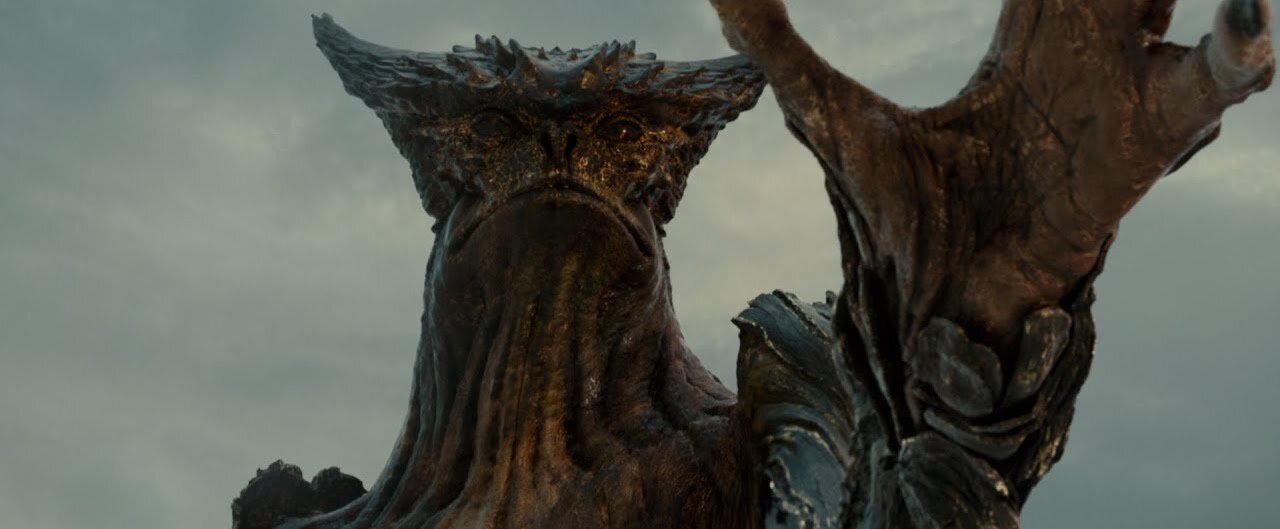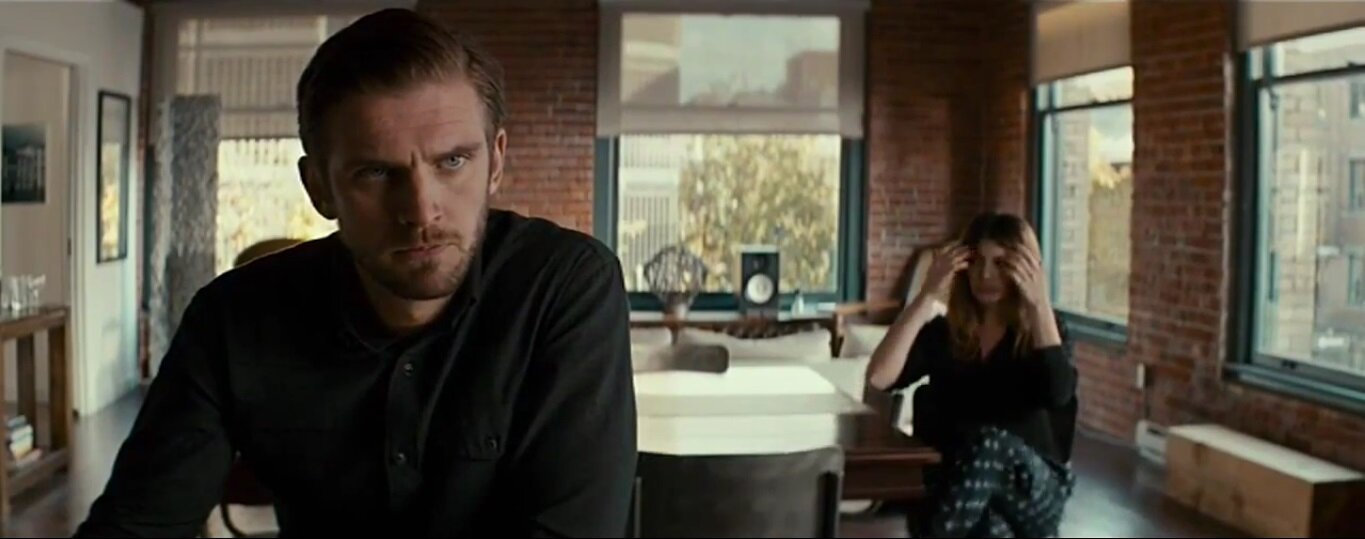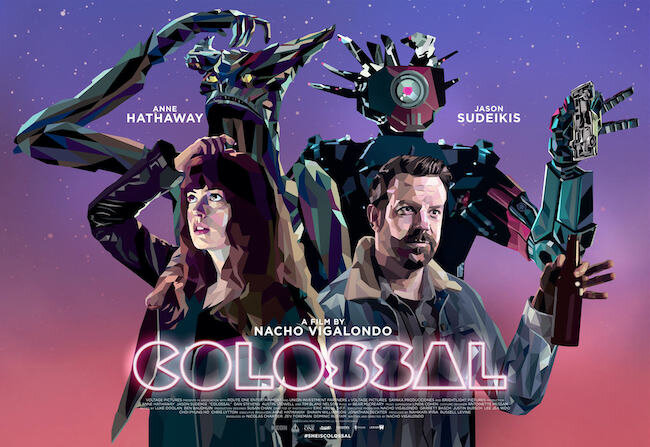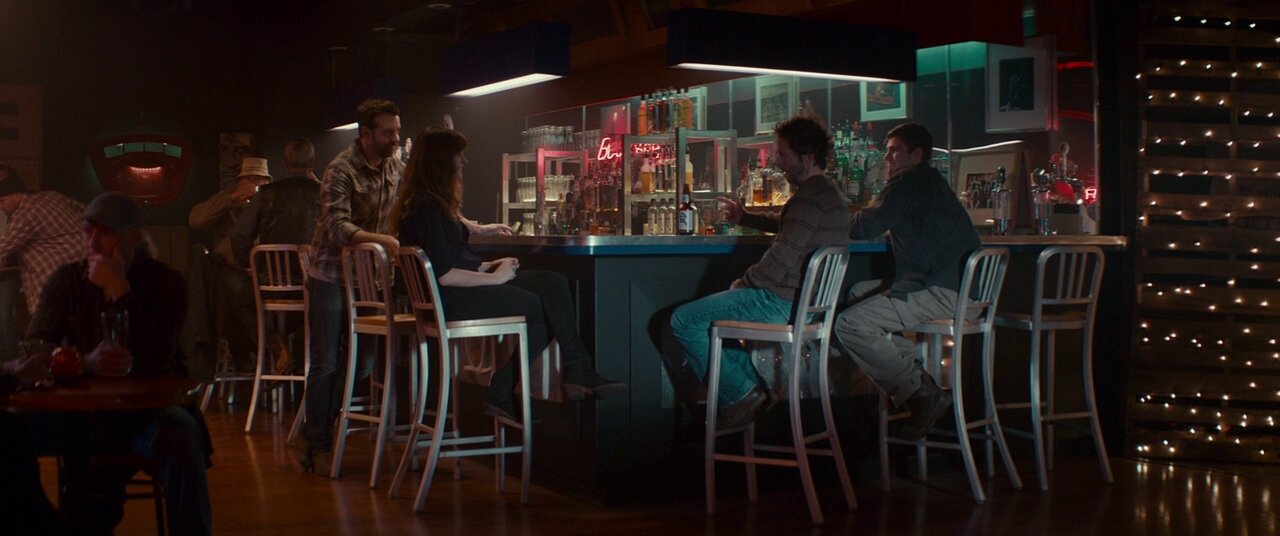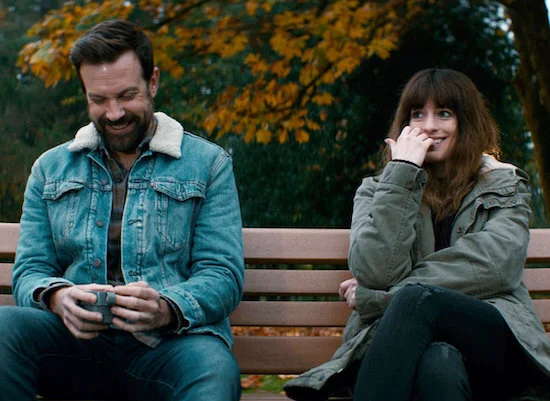COLOSSAL (2016)
As a forever champion for genre fare that features unexpected tonal shifts, complex characters, and strange twists, I am no stranger to feeling like some of my favorite flicks never got a fair shake with major audiences. Nacho Vigalondo’s 2016 Kaiju-inspired COLOSSAL is a perfect example; despite boasting a cast of stars (Anne Hathaway! Jason Sudeikis! Dan Stevens!) and critical acclaim (it currently sits at 81% fresh on Rotten Tomatoes), the film ultimately failed to match its $15 million budget at the box office. Basically, you would be hard pressed to find someone who doesn’t watch films for a living who also happened to catch this one a few years back.
And that’s a damn shame.
COLOSSAL tells the story of Gloria (Hathaway), an unemployed woman with a drinking problem who is rendered homeless when her boyfriend Tim (Stevens) kicks her out of his New York City apartment after yet another post-bender fight. Broke and directionless, Gloria returns to her suburban hometown where she reconnects with Oscar (Sudeikis), a childhood friend who gives her a job at his small-town bar. As Gloria’s drinking remains a progressive problem, matters grow much worse when a massive monster begins attacking Seoul. Why? Well, because Gloria is somehow connected to the monster, of course!
As you can likely tell, COLOSSAL is not your typical foray into big monster territory. With a plot like this, Vigalondo’s film was always going to be a difficult sell to major audiences—at least without giving away what makes it so outstanding. If I were to try, I’d perhaps describe it as one part Kaiju, one part dark comedy, and one part addiction drama. Or a moving, yet funny character study that also happens to be about a giant monster wreaking havoc in South Korea. Or an ambitious sci-fi/comedy hybrid that is also about abuse and mental health. (See?)
Needless to say, it’s no wonder that the film’s official Wikipedia entry currently describes it as a “science fiction black comedy”—a classification that, while not wholly incorrect, truly does not do justice to the complex story. While the narrative and tonal wackiness no doubt makes it a difficult draw for most audiences, I would argue that the ambitious way in which this unpredictable story unfolds is what makes it so special.
When I reviewed COLOSSAL some years back for Dread Central, I noted how it’s the type of film where “moments of laughter turn to moments of sadness and then to outright discomfort.” Looking back on it, this is actually what makes COLOSSAL work remarkably well for me. For all of Vigalondo’s cinematic gloss, Gloria’s journey is presented in very authentic and emotionally impactful ways. The juxtaposition of Gloria’s increasingly grim story against the seemingly innocuous backdrop of suburbia makes for an experience in which it’s difficult to know whether you should laugh, cringe, or cry at any given moment.
This is where COLOSSAL will ultimately shine for viewers who can just roll with it. It’s not afraid to acknowledge the ugly unpredictability of life while also laughing at it, nor is it afraid of lifting the veneers of “party girl” or “boy next door” and revealing the darkness that takes over in some of our lowest moments in life.
Hathaway and Sudeikis especially rise to the challenge here, fully embodying each of their flawed and often difficult-to-watch characters without apology.
Make no mistake: COLOSSAL is a movie both about massively destructive creatures and even more destructive people. Ultimately, by the film’s first major reveal, it will be easy to understand why throngs of people did not flock to Vigalondo’s quirky, yet admittedly off-putting, spin on Kaiju.
Still, for those willing to take the unpredictable ride, COLOSSAL is an emotionally rewarding look at how unmanaged psychological discord and prolonged trauma can fracture the self and, at times, make monsters of us all.


